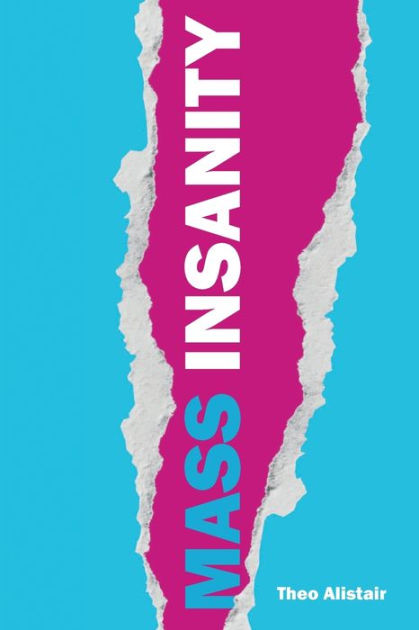Mass Insanity by Theo Alistair
We live in a tumultuous period. With the war in Ukraine in full swing and the countless conflicts taking place in locations such as Africa and the Middle East, mass displacement has become one of the most pressing humanitarian crises of the modern era. With the emigration of these refugees to the West, it is inevitable that the societies on the receiving end will be changed forever.
While change can be good, bad or anywhere on the spectrum between those two extremes, author Theo Alistair has taken a strong stance in his book, Mass Insanity (Liberty In Print). The book explores the subjects of Islam, the clash of identities, and how Islamic societies indoctrinate their members and shape their way of thinking.
And in doing so, Alistair asks the very provocative questions: “Why do millions of supposedly sane people endorse Islam? Can a faith such as Islam that encompasses millions of people lose its mind? Why would a community lose the will to defend itself against an enemy seeking its demise?”
Well-Researched Evaluation of Islam
Alistair takes the position that Islam itself is intrinsically incompatible with modern society. With the use of sources included in footnotes throughout, Alistair backs up his critical statements of Islam’s followers and his belief that they are “insane,” and subscribe to a “salient collective identity that makes people murder, loot and rape.” He explores decades worth of history, a variety of studies, and provides deep analysis into these ideas. The author’s research is thorough, as is his passion and clarity of writing.
Islam is the oldest religion on the planet and has nearly 2 billion followers all over the world. Alistair analyzes a quarter of the world’s population that practices Islam, looking at the religion and its followers as a single defined entity. Readers will be encouraged to read the arguments made in Mass Insanity, investigate the cited sources, and use critical thinking to draw their own conclusions.
Take this argument as an example:
“Is it fair to say that the Japanese as a nation were not responsible for the Imperial Army’s acts during the Second World War because the vast majority of them did not take part in the events?”
This rhetorical question is asked with the assumed answer of “of course not.” Alistair uses this foundation to hold all Muslims accountable for the acts committed by extremists. Can a body of people be responsible for the acts of a few? In Mass Insanity, the answer to that question is yes.
All of the data referenced in the book is real and verifiable but framed to stand in favor of Alistair’s arguments. One source is a survey titled “Muslim Publics Share Concerns about Extremist Groups: Much Diminished Support for Suicide Bombing.” As the title of the survey would suggest, the article shows the rapidly declining support that many extremist groups have within their own countries and communities. For the purposes of Mass Insanity, it is repurposed as evidence to back up the notion that Muslim extremists have far-ranging support amongst the greater Islamic community.
Another major basis of Theo Alistair’s psychological and social evaluation of the religion is the equation of suicide bombing with Islam. Because many suicide bombers are Muslim, Alistair concluded that these bombings are an exclusively Muslim phenomenon. Once again, readers are led to ask themselves, is Islam as a whole responsible for leading its extremist followers into these acts of violence?
Fascinating Sociology & Psychology
Alistair has a talent for writing clear and convincing prose that conveys research and complicated topics in a manner easily digestible to readers of all backgrounds. Every claim is properly attributed to a source, which are worth exploring, as they provide further context and knowledge about topics that necessitate them. The author also does an excellent job structuring the book in a logical manner through history leading up to the current day, which make it easy to follow the arguments and claims being made as well as understand how they were drawn.
This book will interest the most discerning of non-fiction readers interested in sociology, psychology, religion and geo-political matters.
About Theo Alistair:
Theo Alistair is a respected figure in the field of social psychology. His experiences during the 9/11 attacks in New York City and the London bombings have profoundly shaped his life and academic pursuits, fueling his desire to delve into the human psyche’s complexities. Equipped with a PhD in Psychology, Alistair has dedicated his career to exploring collective behavior, radical organizations and authoritarian societies. His first-hand experiences with the effects of terrorism and conflict, combined with his academic prowess, have granted him a unique insight into these subjects.




